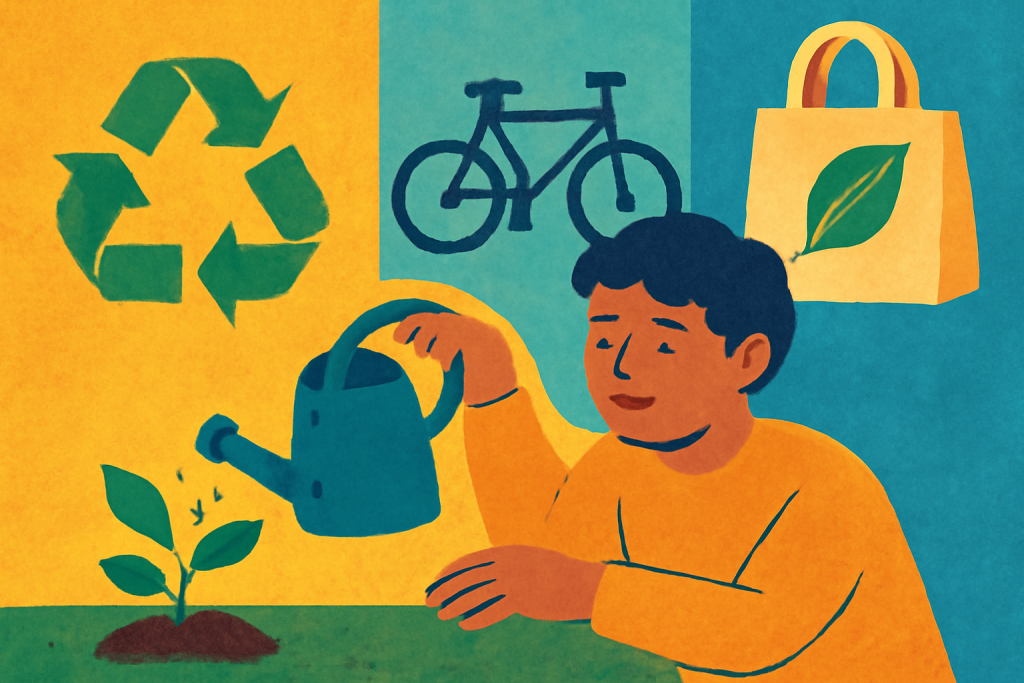Understanding how small changes can make a big difference is essential for sustainable living. By adopting tiny lifestyle swaps environmental impact in your daily habits, such as reducing plastic use or conserving water, you contribute positively to the planet. This article explores practical swaps anyone can start to lower their environmental footprint.
For more energy-saving ideas, check out our guide on home energy efficiency tips.

Why Small Lifestyle Changes Have an Environmental Impact
Everyday habits related to energy, waste, and transportation significantly affect the environment. The EPA notes that individual actions collectively shape carbon footprints and ecosystem health.
Explore simple green habits in our post on sustainable living practices.
Practical Tiny Lifestyle Swaps for Positive Environmental Impact
Replace Single-Use Plastics with Reusables
Using reusable bags and containers drastically cuts plastic waste.
Eat More Plant-Based Meals
Shifting toward plant-based diets lowers greenhouse gas emissions from animal farming.
Find tasty options in our plant-based recipe collection.
Upgrade to Energy-Efficient Appliances and Lighting
Switching to LED bulbs and unplugging unused devices saves energy and reduces emissions.
Learn more in our home energy efficiency guide.
Water and Transportation: Additional Lifestyle Swaps With Environmental Benefits
- Fix leaks and conserve water daily.
- Walk, bike, or use public transit to lower vehicle emissions.
Check out our green travel tips for sustainable transport ideas.
Emerging Trends Supporting Lifestyle Swaps for Environmental Impact
- Zero-waste movements encourage reusable and minimal packaging.
- Smart home tech optimizes energy use.
- Innovative plant-based foods make sustainable eating easier.
Final Thoughts: Small Changes, Significant Environmental Impact
Adopting tiny lifestyle swaps creates a lasting environmental impact. These easy, consistent actions benefit the planet and improve your quality of life over time.
References
- Environmental Protection Agency. (2021). Sustainability and You. https://www.epa.gov/sustainability/sustainability-and-you
- Poore, J., & Nemecek, T. (2018). Reducing food’s environmental impacts through producers and consumers. Science, 360(6392), 987-992.
- International Energy Agency. (2022). Energy Efficiency 2022. https://www.iea.org/reports/energy-efficiency-2022






